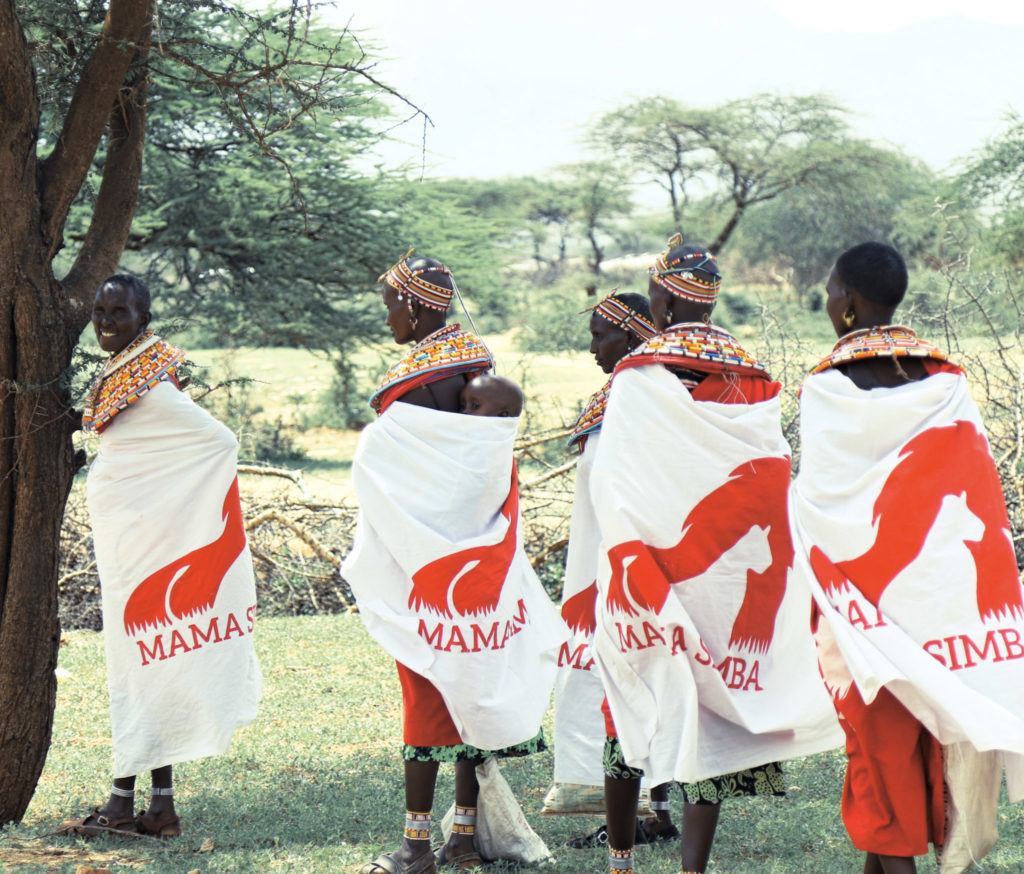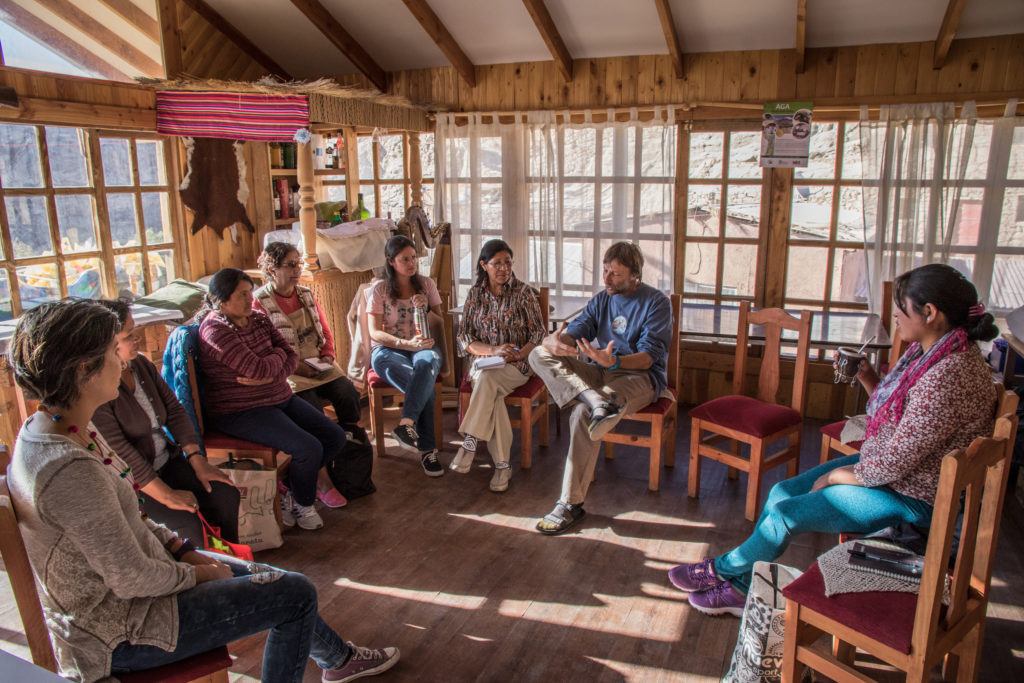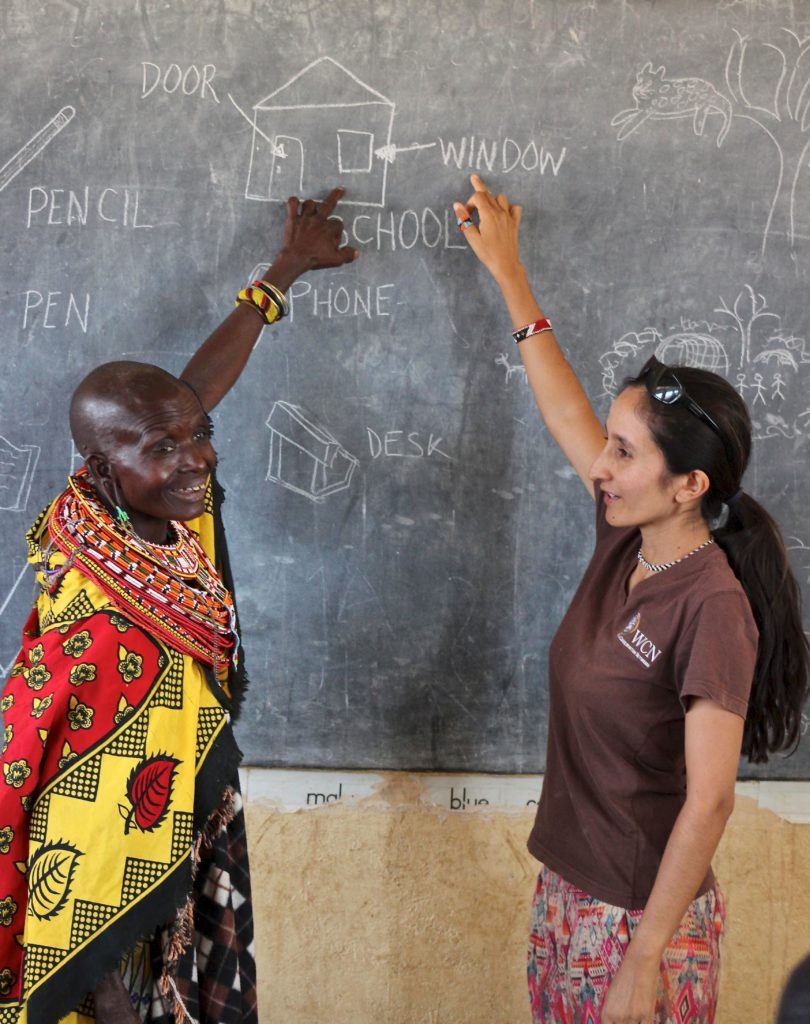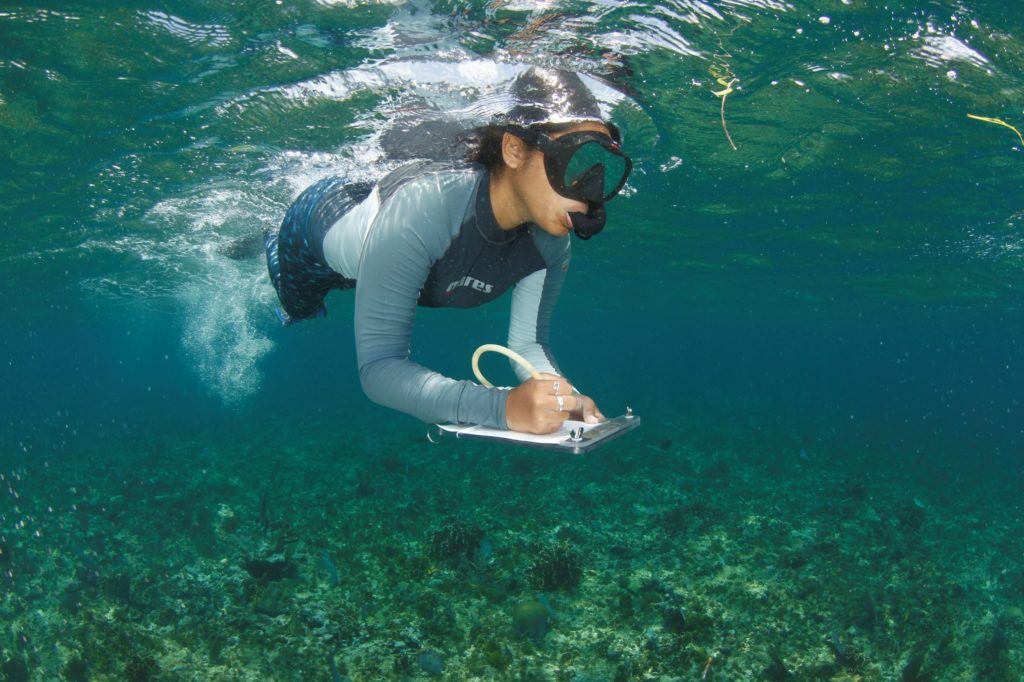
Women play an integral role in conservation, with countless pioneering female conservationists working globally to save endangered wildlife. Tomorrow, on International Women’s Day, we celebrate these extraordinary heroes—many of whom are WCN Conservation Partners—for their passion, tenacity, and the sacrifices they make to save our planet’s most imperiled species.
We also celebrate the courageous local women who work with the conservationists to spread the message of wildlife protection in their respective communities. These women effect change in their homes and villages daily, and are vital to the success of conservation initiatives.
Empowering Local Women

Rocio Palacios and the team at Andean Cat Alliance (Alianza Gato Andino, or AGA) started their CATcrafts Program in 2017 to provide the women living in communities within Andean cat habitat, in the remote Andes mountains, with opportunities to learn a viable skill and earn extra income. Women are taught how to make handicrafts—like woolen figurines and bags—which they sell in local markets and to AGA, who resells them on their behalf. Since the program’s inception, Rocio has seen a positive shift in the way the communities view Andean cats (they are no longer viewed as livestock killers) and AGA’s efforts to conserve them. In addition, the financial opportunities these women have gained from the program has elevated their status as decision makers in their homes and villages, and have turned them into advocates for these highly endangered wild cats.
On the other side of the world, in northern Kenya, Dr. Shivani Bhalla of Ewaso Lions started the Mama Simba program as a way to involve local Samburu women in lion conservation and to help empower them to make better decisions for their families and communities. Through the Mama Simba program, Samburu women are learning to drive, taking weekly English language lessons, and participating in conservation activities. In return, they educate others in their communities about lions, and report on lion sightings and conflict issues, helping to prevent human-lion conflict.
Unique Challenges for Women in the Field
For Gabby Ochoa of MarAlliance, protecting sharks and rays in the waters of Honduras often involves leading a team of male artisanal fishers out to sea, where she trains them in different research methods and where they study marine wildlife; this involves physically taxing activities like snorkeling for long distances and free diving. Gabby’s primary challenge has been to persuade the fishers to take her seriously as a conservationist, which involves proving to them that she is capable of leading the team and undergoing the demands of a rigorous day out at sea. Proving themselves as experienced leaders and strong field workers is a hurdle that a lot of female conservationists have to face. Gabby’s passion for sharks and rays and her determination to be treated as a skilled scientist has helped her remain doggedly on course while also helping her earn the respect of her peers.
These stories are excellent examples of how women in the field face unique challenges and how conservationists can educate, economically empower, and engage women in conservation.



